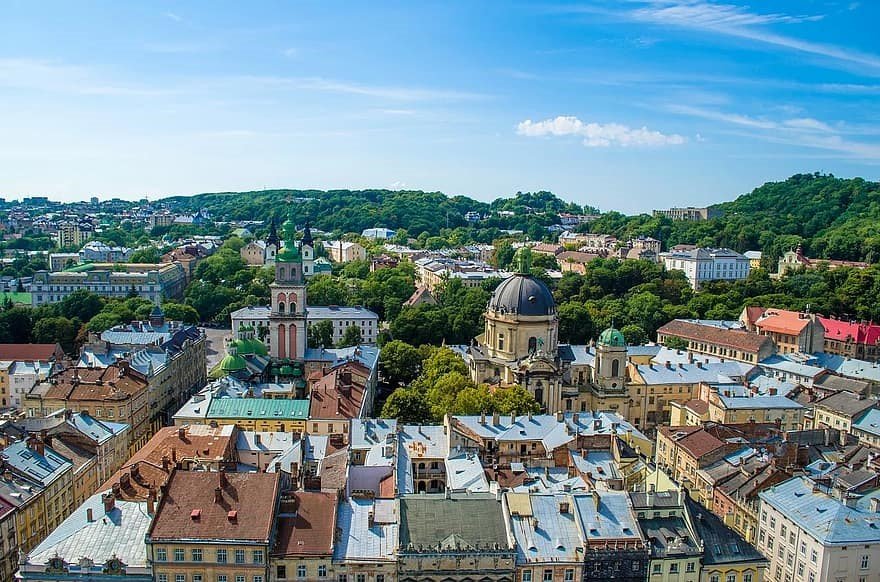Today, as TVs on all seven continents began airing tourism commercials for Qatar in anticipation of the 2022 FIFA World Cup, interest in the country and its infrastructure skyrocketed.
Lured by the new and exciting developments that will be introduced as a result of the country’s World Cup preparation, many potential tourists are eager to explore Qatar. Yet, to fully understand Qatar’s transformation for 2022 and the expected boom in tourism it will cause, one must look at the preparations that have already been made. As a result, we have reached out to Hamad Al Wazzan to get his opinion on how the World Cup might affect the Qatari property market.
Qatar: A New Center for International Travel
According to the FIFA Tournament Time Demand Model, more than 1.7 million people could travel to Qatar during the tournament, with approximately 500,000 people in the country on the days that are expected to be the busiest. During their time in Qatar, fans, teams, and journalists will introduce the country to countless newcomers via print media, broadcast media, and social media.
Air travel, on-the-ground visitor services, hospitality, and accommodation occupancy rates all began to rise in the months leading up to the first kickoff of the tournament because of the competition’s widespread appeal. In terms of the tournament’s economic impact on tourism, this is crucial.
According to Hamad Al Wazzan, “a big number of fresh human force will also be present to service all those new jobs in the market,” meaning that many people will be coming to Qatar specifically to work in the service industry as a result of the tournament.
“Qatar’s tournament preparations far surpassed expectations” Hamad Al Wazzan
It is said that Qatar is pulling out all the stops in order to make a good impression not only on the fans who come to watch the FIFA World Cup but also on the rest of the world, which will be watching with rapt attention.
As such, the government of Qatar was increasing its capital spending on initiatives associated with the tournament. These included a three-line metro, several stadiums, the brand-new cities of Msheireb Downtown Doha and Lusail, as well as numerous roads and other infrastructure projects. The government had cut spending on the general real estate market, including leasing of luxury villas and so on, for their employees in order to make up for these enormous expenses and improve operational efficiencies. It was reported that the government of Qatar was doing so in order to build the foundation for a “world-class country,” while also improving its image and positioning itself as a hot location for tourism, trade, and business. In addition to this, the government has pledged that it will give 70 percent of its people an opportunity to find employment in the nation’s upcoming projects.
In the meantime, 2022 FIFA World Cup preparations have led to an excess of available stock. According to Hamad Al Wazzan, “Rent and price in real estate are functions of supply and demand.” There has been an increase in supply across the board that has far outpaced the expansion of demand. It is expected that supply will increase further in the not-too-distant future. This increase in supply can be attributed to a number of factors, including the Qatari government’s long-term development plans and preparations for the FIFA World Cup 2022.
A Possible Decline Shortly After the World Cup 2022
Hosting the World Cup was a key factor in the country’s economic growth, but it wasn’t the only factor. There will be an increase in supply, especially of hotel rooms, to meet the demand for the event, but the event itself is not expected to have a long-lasting effect on the market. While 2022 is expected to see increased occupancy and rates, the Qatar real estate market is expected to return to a more normalized level thereafter.
The real estate market in Qatar may experience a decline in value and rental rates for up to a year following the World Cup. There would be less demand for homes and businesses after the World Cup because many people and ex-pats working on World Cup-related projects or the World Cup itself would leave the country. Russia (2018) and Brazil (2014), the two countries that had previously hosted the FIFA World Cup, both exhibited this pattern.
Hamad El Wazzan commented: “The real estate markets in Brazil and Russia, the two countries that have previously hosted this tournament every four years, took a hit after the tournament was held there.”
Post-FIFA, Qatar Has a Bright New Future
On the other hand, Qatar’s real estate market appeared to have a bright medium-term outlook, suggesting that the country might even be an outlier or recover more quickly than expected. The government of Qatar played a significant role in this success. We can look at the freehold property law that was just passed by the government in the first quarter of this year as an illustration.
In a manner analogous to Dubai’s freehold law, foreigners would be able to move to Qatar and purchase real estate there. Opening the market to international investors would require some time to take effect. It is predicted that this would make the real estate market in Qatar less reliant on government subsidies and more like that in developed countries.
As an alternative, the government could host additional events of a comparable scale after the World Cup, or continue to invest heavily in the Qatari real estate market after the event, as it has in the past. Possibilities like these may help this industry grow in the future.
Qatar’s positioning as a luxury destination is gaining traction, and developers’ attention to this market segment is attracting affluent homebuyers. This is in keeping with the government’s ongoing efforts to entice foreign real estate investment, as a number of benefits have been announced for those who invest in the real estate market, and a number of previously off-limits areas have been opened up for foreign ownership.
The longer-term effect is hoped to be an increase in the recognition of Qatar as a premier location for companies catering to Middle Eastern markets and a crossroads for East-West trade, as well as a wonderful place to live with cutting-edge amenities and the opportunity for foreigners to purchase their own homes, and a fresh, desirable vacation spot.
As a result, there would be a greater need for houses to buy and stores to rent as the population grows.
Investment in the metro, stadiums, new destinations (Msheireb Downtown Doha and Lusail), and the road network in preparation for the World Cup will increase the country’s efficiency and overall appeal, attracting new businesses, events, and the white-collar workers needed to service them, all of which will have an impact on the real estate market.
The government’s dedication and incentives for the market suggest that Qatar’s real estate sector will quickly recover in the medium to long term after the tournament ends.
Although the market is expected to witness a possible decline in the performance of the real estate sector in Qatar following the World Cup, the infrastructure of the country, and the new projects created in parallel, as well as the vast marketing for Qatar as a new tourism hub will surely reflect positively on the sector eventually, says Hamad Al Wazzan.






